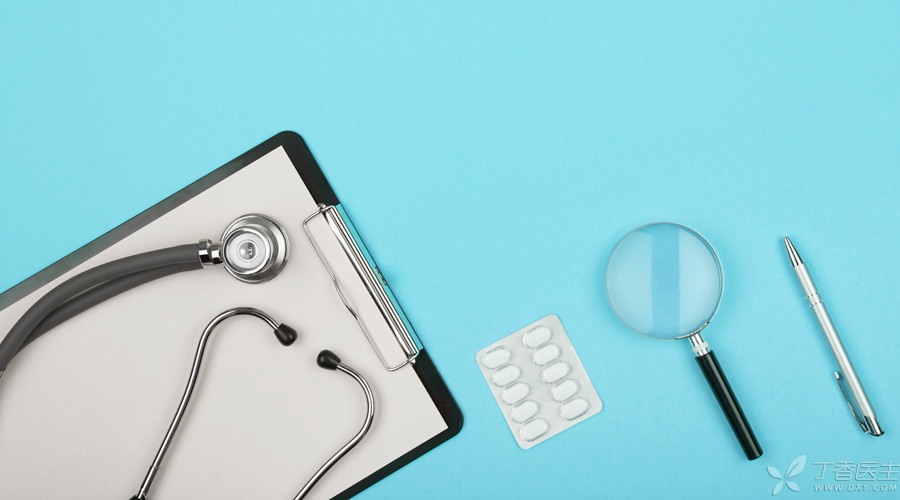
Cancer is becoming more and more common now, and there are many advanced cancers.
So in life, we often hear such questions:
Every year, I have a physical examination, and the results are normal. Why do many people find that cancer is advanced?
Is the physical examination program not good or is the doctor’s ability insufficient?
This pot, [both of them] don’t carry…
Let’s talk about the physical examination first.
The average person’s annual routine physical examination is mainly to understand the overall health level. The examination items can be roughly divided into two categories:
- Physical examination: breathing, heartbeat, height, weight, face, posture… in short, look at it from head to foot; Instrument examination: blood routine, liver function, renal function, B-ultrasound, electrocardiogram, etc.
These tests can help people understand their physical condition and the operation of important organs, and can also find some common chronic diseases, such as hypertension, hyperlipidemia, diabetes, etc.
However, unfortunately, the vast majority of cancers will not affect these physiological indicators examined by doctors during routine physical examination at an early stage.
Therefore, it is neither the fault of the examination items nor the doctor’s pot.
So the real reason is what?
Reason 1: Early symptoms are very inconspicuous,

As we mentioned earlier, the early symptoms of most cancers are not obvious.
Of course, there are many kinds of cancers. Let’s take common liver cancer, lung cancer and gastric cancer as examples to illustrate:
Symptoms of liver cancer: liver pain, loss of appetite, fatigue, emaciation, fever and jaundice
The liver is known as a [dumb] organ. Since the liver itself has no pain nerve, only the capsule is covered by nerve, and only when the tumor grows to a certain volume will the capsule be compressed to produce pain.
In addition, the liver has a good compensatory ability. Only when most of the liver is broken can there be obvious liver dysfunction. If you don’t take the initiative to check up on weekdays, it is difficult to find liver problems.
Symptoms of lung cancer: cough, hemoptysis and sputum, chest tightness and chest pain, fever and shortness of breath
The lung is located in a large cavity (chest cavity). In a sense, it provides a place for tumor growth, so it is difficult to produce symptoms of lung compression.
When the tumor compresses and invades the trachea, the symptoms of cough and blood sputum will be more obvious. However, when these symptoms are examined, they are often in the middle and late stages.
Gastric cancer: upper abdominal fullness and discomfort, anorexia, belching, acid regurgitation, nausea, vomiting, black stool.
The above string of uncomfortable symptoms is the manifestation of early gastric cancer.
Everyone must have seen that these symptoms are too common and common, and are too similar to the symptoms caused by gastritis, gastric ulcer and benign gastric tumor, so even if gastric cancer occurs, people may not feel it and think it is just a common [old stomach disease].
Reason 2: Maybe two things were not done well,

Cancer growth is a very slow process. Only when the volume becomes crazy in the later stage, the tumor invades blood vessels and compresses nerves and surrounding organs will the corresponding symptoms be caused.
Although there are many cancer-related examinations, so far, no examination has been able to detect 100% tumors and there will always be omissions.
Moreover, even if the whole body can be cleaned again, this set of examination costs a lot and has a great impact on the body, so it is not realistic at all.
At present, everyone’s health awareness is getting stronger and stronger, but their understanding of disease risks is still not enough. Many people will make two mistakes:
-
Do not know the physical condition of their families, do not know their own risk of illness;
-
Ignore minor problems, minor problems, etc. have symptoms, [feel] health is not good, just start regular examination.
Careful readers may see that these two problems are the key to the early detection of cancer.
Only by understanding one’s own risk of illness can one effectively prevent it.

It is wise to understand the high-risk factors of common cancers, see what kind of cancer you are [high-risk group], and conduct targeted examinations.
Let’s take several common cancers as examples:
Hepatocellular carcinoma
High-risk groups:
- More than 40 years old (especially men), have a history of drinking, have been found to be infected with hepatitis B or hepatitis C virus, or have a history of chronic hepatitis; There are liver cancer patients in the family.
Inspection method:
High-risk groups should do a good job in liver cancer related examination, the method is abdominal ultrasound examination + AFP.
This is an ideal screening scheme at present, which can greatly reduce missed diagnosis of liver cancer.
Gastric cancer
High-risk groups:
- More than 40 years old have a family history of gastric cancer. Patients with precancerous diseases (chronic atrophic gastritis, verrucous gastritis, gastric ulcer) and precancerous lesions (intestinal metaplasia of gastric mucosa, atypical hyperplasia). There are also some clear risk factors: Helicobacter pylori infection, smoking, high salt diet and other dietary factors.
Inspection method:
- Gastroscopy is currently the most intuitive and effective detection method (gold standard for gastric cancer detection); Barium meal examination is the main method for early screening of gastric cancer. Pepsinogen examination, gastric cancer marker (serum MG7-Ag) detection, etc.
Lung cancer
High-risk groups:
- Family history of lung cancer over 50 years old; Heavy smokers (2 packs a day for 20 years), including second-hand smoke and third-hand smoke, are also deeply affected. Living in areas with serious air pollution and water pollution. People exposed to soot (workers) and lampblack (cooks) for a long time.
Inspection method:
- Low-dose spiral CT tumor markers (CEA, NSE, etc.).
Of course, there are many kinds of cancers, and only the three most common cancers are discussed here.
Every time we talk about cancer, we will mention [early detection, early treatment], but only when we know the relevant knowledge can we find it in time and the treatment effect will be better.
Therefore, if you don’t want to [cancer is advanced as soon as it is discovered], what you need to do is to learn more (especially from Dr. Clove).
